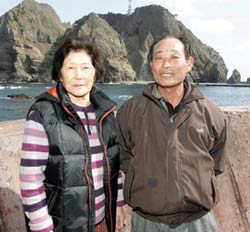Korea goes to find spring technology
Koreans want to be immortalized by the school of spring and they take it seriously in their own way.

South Korea's population is aging rapidly (photo: korean.net)
South Korea's population is aging rapidly and the country intends to spend more than $ 20 million in the next 10 years to discover the secret of prolonging spring age. This investment is to help people maintain their dynamism to compensate for the very low birth rate.
From now until 2016, the Korean Ministry of Science and Technology plans to fund 19.8 billion won (US $ 20.6 million) for scientists to study anti-aging methods. "This money is not enough to prevent the aging of the population, but it can make society healthier. Thereby, Korea will become a superpower in the biotechnology field," Cho Seong-chan, extra The Department of Technology under the Ministry of Science and Technology said.
Aging fastest
The plan reflects Korea's concern over the fact that the aging population began in 2000, when the proportion of people over 65 years old exceeded 7%. A declining birth rate is a global trend but this phenomenon is particularly pronounced in Korea. According to expert Moon Hyung-pyo of the Korea Development Research Institute, the society of kimchi is aging with the fastest speed in the world. The number of people over 65 will account for 37% of the population by 2050. Mr. Moon said that increasing spending on health and health benefits is not the perfect remedy. He suggested Korea should promote birth rates and create conditions for older people to stay healthy and work longer. If not, the rate of economic growth can be reduced from the current 4.7% to 2.91% in 2020 and 1.6% by 2030.
Korea is a "latecomer" in the field of biotechnology. Scientists in the country were shocked after a scandal involving professor Hwang Woo-suk, who is being tried for his "stem cell" research work. Hwang, 52, became a national hero when he announced that his team had created the right stem cells for patients in a breakthrough study of cloning, paving the way for find ways to treat many different diseases.
But then, Hwang and five other colleagues were convicted of fraud, embezzlement and moral violations after a team of experts discovered their claims were unfounded. Korean scientists said the scandal did not affect their efforts to develop anti-aging technologies.
Initial detection
"Hwang is just a special case. Korea has many elite scientists that can match the world's leading researchers in making biotech products," said Professor Kim Tae-kook of Korean Institute of Advanced Science and Technology said. In June, Kim announced that he had created a synthetic molecule that allowed human cells to avoid aging and make them "younger". Kim said this is the first time in the world that humans have created a substance that can slow down the aging process of cells and at the same time create an opposite reaction. He hopes that CGK733 can help heal wounds, produce anti-aging and tissue regeneration cosmetics. His work was published in the scientific journal Nature Chemical Biology.
The plan to build anti-aging technology is part of a comprehensive campaign against declining birth rates in Korea. Despite preferential treatment, many Korean young people are not willing to give up their careers to get married. Some consider their children a burden to life and career. Consequently, the birth rate dropped to a record of 1.08 children / woman in 2005, from the previous 2.6 children. It is estimated that the population of Korea will fall from 48 million in 2006 to 40 million by 2050.
Trung Quang
- Korea helped Vietnam build a research institute
- Little known things about the technology world in the mysterious Korean nation
- Spring in the Department of Astronomy
- Technology paradise in Korea
- An odd episode in spring
- Korea will launch the satellite after two failed attempts
- Google Doodle reminds you of the Spring Equality Day of 2019
- Spring finger is what disease?
- This year has been the earliest spring season since 1896
- Construction of Vietnam - Korea Science and Technology Institute in 2014
- Beautiful pictures of Korea in the cold winter
- North Korea and incredible but incredible things!
 Green tea cleans teeth better than mouthwash?
Green tea cleans teeth better than mouthwash? Death kiss: This is why you should not let anyone kiss your baby's lips
Death kiss: This is why you should not let anyone kiss your baby's lips What is salmonellosis?
What is salmonellosis? Caution should be exercised when using aloe vera through eating and drinking
Caution should be exercised when using aloe vera through eating and drinking